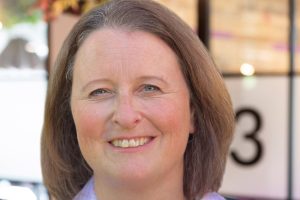‘Take it steady on recovery’ – Yorkshire Bank chief economist

THE CHIEF economist of the Yorkshire Bank told an invited audience at the bank’s Birmingham HQ that a slowdown in the UK’s economic recovery would be a “very good thing.”
Outlining the state of the country’s finances to an event jointly hosted by Yorkshire Bank Corporate & Structured Finance and TheBusinessDesk.com, Tom Vosa said a fast recovery would put upward pressure on interest rates, and could leave over-leveraged businesses stranded.
He said: “We don’t expect to see the Q2 boom continue. A slowdown in the UK economy at this moment in time is a very good thing. If we were growing by 3 %, interest rates would have to be much higher and monetary policy would have to tighten far more aggressively. What we need is a long pause and slow and steady growth – enough to keep interest rates at a low level. And if that continues we can slowly deleverage also.”
The event was hosted by Yorkshire Bank Corporate & Structured Finance area director, Ian Howey , and Marc Reeves, editor of TheBusinessDesk.com West Midlands. Guests included major figures from the finance and private equity sectors as well as the corporate world.
- Yorkshire Bank’s Corporate & Structured Finance economic lunch part two: Manufacturing, deals and banking in the spotlight. See TheBusinessDesk.com on Monday

Warming to his theme of the pace of the recovery, Mr Vosa said: “Within the UK, yes, Q2 was extraordinarily strong. We have recovered from our deepest post-war recession but the recovery will be prolonged and protracted because we normally go into recession with one element of the economy out of balance – either the public or the private sector. This time we’ve gone into recession with two parts of the economy out of balance.”
The recession was caused by a supply side shock – to the availability to credit, he said. “So the reaction of the central bank was different.”
“By cutting interest rates to zero, it was essentially giving over-leveraged bits of the economy a free holiday. We haven’t see the deleveraging we’d have expected in the past. People who over-paid for assets can still service them because their borrowing costs are close to zero.
Mr Howey added; “It’s only as we see a recovery and normalisation of interest rates that were going to see exactly how much indebtedness there is in the economy. That’s when we’d expect to see asset prices adjusting downwards.”
• Attendees at the event included Martin Poole and Dan Salt from Yorkshire Bank Corporate & Structured Finance, Mike Ward, senior partner of HBJ Gateley Wareing, Jon Hustler of Clearwater Corporate Finance, Trevor Foster of Lockwoods, Simon Hitchcock of Lyceum Capital, Martyn Pilley of Grant Thornton, Martin Draper of LDC and Richard Sanders of Catalyst. Mark Hales, Paul Southern, Roy Kishor and Nick Brayshaw represented the corporate community.









